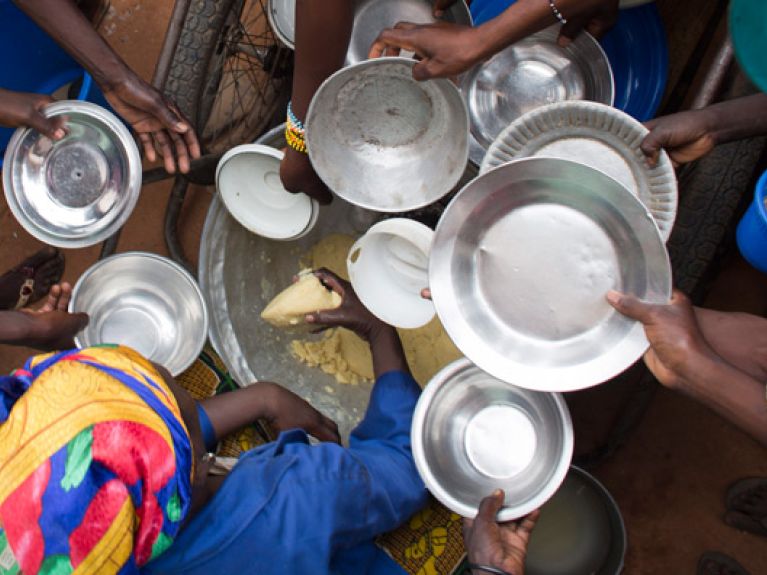The fight against hunger
The German Food Partnership helps developing and newly industrialised countries to increase the amount and quality of food they produce.

In recent years, the number of people affected by hunger has steadily fallen in most countries of the world: the figures have improved by 39% since 1990. This is a positive finding of the 2014 Global Hunger Index (GHI) of the Welthungerhilfe. Nevertheless, 805 million people worldwide are still undernourished. And because the world’s population is growing, hunger could increase. According to United Nations estimates, global food production will have to rise by 60% if the global population is to have enough to eat in 2050.
The German Food Partnership (GFP) also wishes to contribute towards that. The private-public coalition is made up of roughly 35 German and European agricultural companies, including family-owned firms and large corporations such as the chemicals and seed companies Bayer CropScience, BASF and Syngenta, the agricultural machinery manufacturer Claas, charities like the Bill & Melinda Gates Foundation, and German development organisations. Together, the partners are realising projects in developing and newly industrialised countries that aim to increase the amount and quality of food produced. Above all, small farmers are being helped to produce larger crops through the provision of training and access to modern seeds, fertilisers, pesticides and machines. For example, rice production is being supported in Thailand, Indonesia, the Philippines, Nigeria, Ghana, Burkina Faso and Tanzania. Additional projects are soon to improve the cultivation and distribution of potatoes and oilseeds in Africa.
Emphasis on sustainable agriculture
The GFP places special emphasis on sustainable and environmentally friendly farming in all its projects. The first GFP projects in Asia and Africa have a total budget of almost 40 million euros. The partnership has set an important target: over 100,000 people are to increase their income with its assistance. Furthermore, consumers in the partner countries should become less vulnerable to price increases and supply bottlenecks on the world market. “Companies along the entire value chain have come together within the German Food Partnership – they are involved in everything from seeds, harvesting, storage, transport and processing to marketing,” says Gerd Fleischer, Head of the Competence Centre for Agricultural Trade, Agricultural Economics and Standards at the Gesellschaft für Internationale Zusammenarbeit (GIZ). The GIZ coordinates GFP projects on behalf of the Federal Ministry for Economic Cooperation and Development (BMZ).
World Food Day on 16 October 2014
© www.deutschland.de

